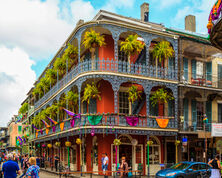
Departures: Year Round
from £3,899 pp.
Book your holiday today:
Within GB: 01580 214 089 • International: +44 (0)1580 214 089
America has a long and rich history, with many proud moments. But, as is the nature of human history, it also has a darker side, a side that surely will never be forgotten.
Attributed to the brutal killing of 14-year old Emmett Till, an African American boy who, allegedly, insulted a white woman in rural Mississippi in 1954, the Civil Rights Movement kicked off a series of nonviolent protests to end racial discrimination in the USA from the 1950s to the late 1960s. The struggles that took place during this period laid bare its fundamental constitutional flaws and have helped shift attitudes towards more open, liberal thinking.
Use the interactive timeline below to learn more about the events that defined the Civil Rights Movement.
Sorry, this content can not be displayed.
The following consent is required:
Required cookies.
Countless figures joined the fight for racial equality, some risking their lives. Emmett Hill was murdered aged just 14 for allegedly insulting a white woman. Rosa Parks, on her way home from work and sitting in the designated "coloured" section of a bus, refused to give up her seat to a white person. Martin Luther King, Jr. is considered the most prominent figure in the fight against racial discrimination from 1954 until his assassination in 1968. He is remembered for his "I have a dream" speech.
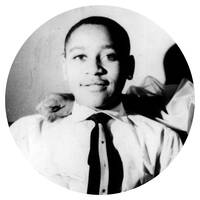
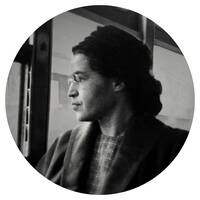
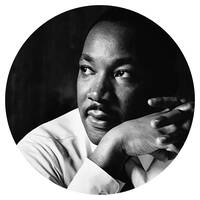
Running through the southern states of Alabama, Arkansas, Delaware, Florida, Georgia, Kentucky, Louisiana, Mississippi, Missouri, North and South Carolina, Tennessee, Virginia, West Virginia and Washington DC, the US Civil Rights Trail connects over 100 historically important sites that played a fundamental role in the Civil Rights Movement. It was set up under the Obama Administration and opened in 2018.
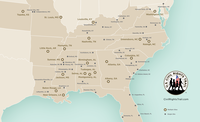
Birmingham Civil Rights Institute, Birmingham
A modern museum exhibiting a collection of items, spoken stories, photographs and archive documents covering the the most important events of the Civil Rights Movement. Highlights include a reproduction of a 1950s segregated city, a replica of the Freedom Riders bus and Martin Luther King’s prison cell door.
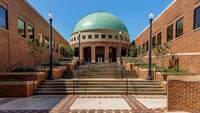
Dexter Parsonage Museum, Montgomery
The former parsonage, home to twelve pastors of the nearby church between 1920 and 1992 including MLK (between 1954 - 1960), now houses a museum dedicated to the history of the church and his pastorate. The church and parsonage are preserved as they would’ve looked with MLK was residing there with the King family’s books, vinyl records and mid-century furniture in-situ.

Rosa Parks Museum, Montgomery
Located at the site of Parks’ arrest for refusing to give up her seat, the Rosa Parks museum charts her story, its place in the Civil Rights Movement, and features a bus similar to the one on which she famously travelled.
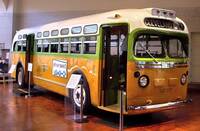
The Legacy Museum & National Memorial for Peace and Justice, Montgomery
Opened in 2018, The Legacy Museum: From Enslavement to Mass Incarceration tracks the enslavement of African-Americans, racial lynchings, segregation and racial bias. It is located close to one of the most prominent slave auctions in the country. Through interactive displays, sounds, lighting effects and smells, visitors can experience what it would’ve been like to have been imprisoned and awaiting the auction block.
The National Memorial for Peace and Justice is situated a short walk from the museum and is the first memorial of its kind, recognising thousands of lynchings that occurred across the US, many of which were undocumented.
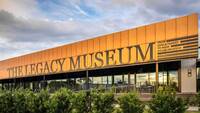
Edmund Pettus Bridge, Selma
Now a National Historic Landmark, the Edmund Pettus Bridge was the site of the brutal Bloody Sunday beatings of Civil Rights marchers. The attacks were televised and prompted support for activists and the voting rights campaign. The landmark was named after Edmund Pettus, a senator, officer for the Confederate States Army and Grand Dragon of the Klu Klux Klan. There are calls to rename the bridge.

Ebenezer Baptist Church, Atlanta
Part of the Martin Luther King, Jr. National Historic Park, the Ebenezer Baptist Church is a living tribute to King. He was baptised, ordained and served as a co-pastor here with his father until his untimely death in 1968. The church is still an active place of worship but anyone can join a service.
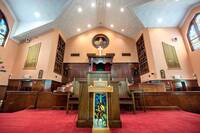
Martin Luther King, Jr. Birthplace, Atlanta
Built in 1895 in Queen Anne style, MLK’s birth home at 501 Auburn Avenue is open for free ranger-led tours on a first come, first serve basis. The house stayed in the King family even after MLK’s assassination in 1968, being restored and handed over the the National Parks Service as a historic museum.
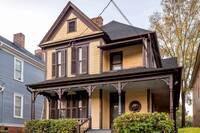
Martin Luther King, Jr. National Historic Park, Atlanta
King’s birth home, Ebenezer Baptist Church, The King Centre and tomb are all located within this National Historic Park. Run by his children, notably Martin Luther King III, the centre houses his historic archive, photos, artefacts, and the tomb of MLK and his wife.
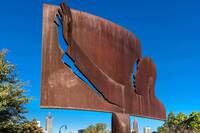
Dooky Chase’s Restaurant, New Orleans
Dooky Chase’s Restaurant opened its doors in 1941 as a sandwich shop and later thrived into a bar and family restaurant in the historic Tremé neighbourhood of New Orleans. It soon became a meeting place for music and entertainment, civil rights and culture. Martin Luther King, Jr. would often visit the establishment to discuss strategy and planning for upcoming marches. The restaurant still serves up food of Creole origin in a traditional yet vibrant, art-filled space. Expect Creole Gumbo, Po’boy sandwiches and fried chicken.
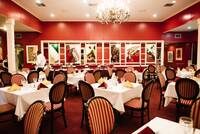
Tremé, New Orleans
The historic neighbourhood of Tremé in New Orleans is America’s oldest African-American neighbourhood. Today, it is considered ground zero for the city’s culture and is home to many museums and the Louis Armstrong Park.
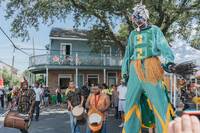
Mississippi Civil Rights Museum, Jackson
Opened in 2017, and the first of its kind in the state, the Mississippi Civil Rights Museum houses exhibits relating to the Movement from 1945 to 1976, with a galleries dedicated to black empowerment and modern racial issues.
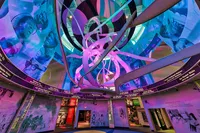
Freedom Trail
Beginning in Jackson with markers at the home of Medgar Evers, a civil rights activist and field secretary for the National Association for the Advancement of Colored People (NAACP), the Greyhound Bus Station, Mississippi State Capitol, Council of Federated Organizations Civil Rights Education Centre, Tougaloo College, Jackson State University and the site of the 1963 sit-in at Woolworths. Markers are dotted across the state from the March Against Fear on Highway 51 in the north to African-American physician Dr Felix Henry Dunn’s home in the southern city of Gulfport.
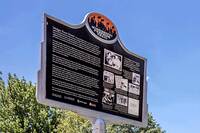
Mason Temple Church of God in Christ, Memphis
On 3 April 1968, just a day before his assassination at the Lorraine Motel, Martin Luther King, Jr. gave an impassioned speech in support of the Memphis sanitation workers’ strike in front of an audience of over a thousand. The speech became known as the “Mountaintop” speech after Kind said that he had “been to the mountaintop” and had “seen the Promised Land”.
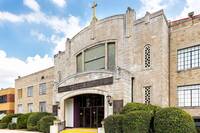
National Civil Rights Museum & Lorraine Motel, Memphis
The National Civil Rights Museum consists of a collection of historic sites and museums in and around Memphis, each dedicated to the history of the Movement from the 17th century to present day. The Lorraine Motel, adjacent to the National Civil Rights Museum, was the site of MLK’s assassination in 1968 and has been preserved with vehicles of historic value sitting outside including an International Harvester garbage truck used during the 1968 Memphis sanitation strike, a 1966 white Ford Mustang used by convicted killer of MLK, James Earl Ray and a recreation of the burned shell of a Greyhound bus used by Freedom Riders.
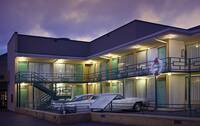
The Rhythms of the South independent motorhome tour incorporates three of the main centres for American music, New Orleans famous for jazz, Memphis, home of the Blues and birthplace of Rock and Roll, plus Nashville for rock, bluegrass, jazz, blues and soul. With most of the drives being on easy to drive Interstate Highways and two or three night stays in most destinations, this tour should allow you plenty of time to relax and to soak up the music.
Tailor your holiday to take in the historic sites of the south for a expertly-curated cultural journey.
Civil Rights Trail roadtrip itineraries
Ben Tully
Visual Design & Content Creation
Ben deals with all things design, working on the visual design of our annual guides, Destinations magazine, information leaflets, social media and email campaigns, and much more across the Alan Rogers, Rallies and Worldwide brands. He also produces written content for our blogs alongside our other contributors.
More by Ben Tully